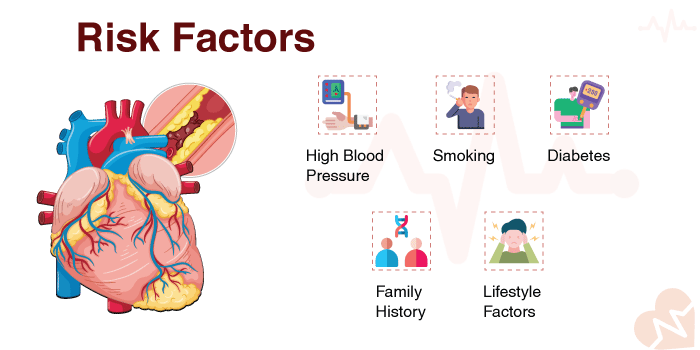Health & Beauty
Increased heart attacks: An explanation of lifestyle, genetics, and novel risk factors


By Kajal Sharma - 25 Aug 2025 06:40 PM
An poor diet, inactivity, and smoking are among the lifestyle choices that lead to high blood pressure, high cholesterol, and an increased risk of heart attacks. A family history of heart disease, particularly early-onset heart disease, suggests a propensity, thus genetic factors also come into play. Furthermore, chronic diseases like chronic kidney disease, some chronic inflammatory diseases, and even mental health conditions like anxiety and depression are examples of novel risk factors.
These conditions can interact with lifestyle and genetic factors to raise risk, especially during stressful times.Aspects of Lifestyle Unhealthy Diet: Diets heavy in sodium, cholesterol, trans fats, and saturated fats can cause atherosclerosis, or plaque accumulation in the arteries, high blood pressure, and elevated cholesterol levels.Physical Inactivity: Living a sedentary lifestyle raises the risk of heart disease as well as other risk factors like diabetes, high blood pressure, high cholesterol, and obesity.Smoking: Smoking raises the risk of heart attack and stroke, making it a major risk factor.Alcohol Abuse: Drinking too much alcohol increases the risk of heart disease by raising blood pressure and lipid levels.Obesity: Being overweight or obese raises the risk of heart disease and is associated with risk factors like diabetes and high blood pressure.Factors related to genetics Family History: A higher genetic predisposition to heart attacks may be indicated by a significant family history of early heart disease or specific genetic disorders, such as familial hypercholesterolemia.
























